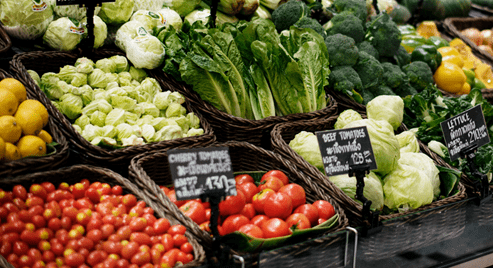Farm Animal Sanctuary in New Jersey
Animal Defenders for Life

A place for them, a place for hope

Mike started Skylands Animal Sanctuary and Rescue with one tiny piece of land and a few small animals. That tiny piece of land grew to become an entire farm full of rescued souls. These animals are rescued from slaughterhouses, live markets, farms, extreme neglect, abuse, religious ceremonies, abandonment, and are even found wandering streets…
No matter where they are from or from what dire circumstances they escape, they are provided with proper veterinary care, the best foods, water, a safe place to live, eat and sleep as well as lots of love around the clock.
Every animal requires room to run and live unencumbered by the threat of harm and each one gets exactly what they need here at the Skylands Sanctuary.
Learn more about how you can sponsor an animal or visit us to take the tour!
Helping people to go vegan is the most effective thing you and other compassionate individuals can do to help animals. In just one hour distributing vegan literature or sharing videos, you can save dozens of animals!
Why imagine it all happening behind the scenes when you can take part in the action! There’s always a lot to do here that will keep you busy and benefit the animals in a tangible way.
Over 170+ rescued animals call Skylands Animal Sanctuary and Rescue home. We need volunteers each day to make our daily operations possible.
Volunteer Activities

Typical volunteer activities include mucking barns and coops, raking, and pasture cleaning. Many of the animals will come visit you while you complete your tasks but please remember that some tasks might not include much animal interaction. Volunteering is physically intensive, so expect to get a good workout!
Volunteer Hours
The volunteer hours run from 9:00 am-5:00 pm. We respectfully request a minimum commitment of 3 hours, but you can work the whole day if you’d like! Please arrive 15 min early so we can get started on time. If a situation arises where you will be arriving late or need to cancel last minute, please call us at 973-721-4437 ASAP.
Age Restrictions
For safety and liability purposes, all volunteers must be at least 14 years of age, no exceptions. Volunteers who are ages 14 or 15 will need parent/guardian supervision for the duration of the day.
Special Needs
If you have any special needs or service animals, please contact us directly at 973-721-4437 so we can plan volunteer activities for you ahead of time.
Useful Tips
Bring clothes & boots that are weatherproof and that you don’t mind getting muddy, and work gloves if you have them. Check the weather forecast for zip code 07461 and dress appropriately. Rugged boots (not sneakers) are a must and don’t forget your sunglasses and sunscreen. We encourage you to pack a vegan brown bag lunch — no meat or dairy please, out of respect for the animals.
Though we always appreciate it when people from out of town volunteer with us, we are currently unable to offer room and board for volunteers. However, there are a variety of other accommodations in the surrounding area.
Living a more compassionate lifestyle definitely includes veganism.

Although people might first try a vegan diet in order to be more fit and healthy, anyone can tell you that over time, a vegan’s eyes will open to the plight of the animals that are slaughtered for the meat industry. Over 56 billion farmed animals are killed every year by humans. These shocking figures do not even include fish and other sea creatures whose deaths are so great they are only measured in tonnes. The longer you’re vegan, the more you realize the insanity of the whole idea.
Protein is created by a process that uses nitrates and chlorophyll. Animals do not have the ability to create protein like plants do. Any protein found in animals was from the plants they ate! Mounting evidence shows that reducing meat and increasing plant-based proteins is a healthier way to go. “A diet with any type of meat raises the risk of heart disease and cancer when compared with a vegetarian diet,” says cardiologist Dr. Deepak Bhatt, a Harvard Medical School professor.
Research has shown that all plants contain protein and at least 14% of the total calories of every plant are protein. Try quinoa, barley, bulgur wheat, amaranth, millet, and brown and wild rice. Nuts, nut butter, and seeds are another source of protein, and they are rich in healthy unsaturated fat. There are many to choose from: almonds, cashews, hazelnuts, pecans, pistachios, and walnuts; almond butter and cashew butter; and pumpkin seeds, sesame seeds, and sunflower seeds. The richest source of plant-based protein is the legume family: lentils, split peas, black-eyed peas, and beans—black, kidney, garbanzo, lima, navy, pinto, white, and kidney. The soybean, another legume, is the source of tofu and tempeh, which are rich in protein.